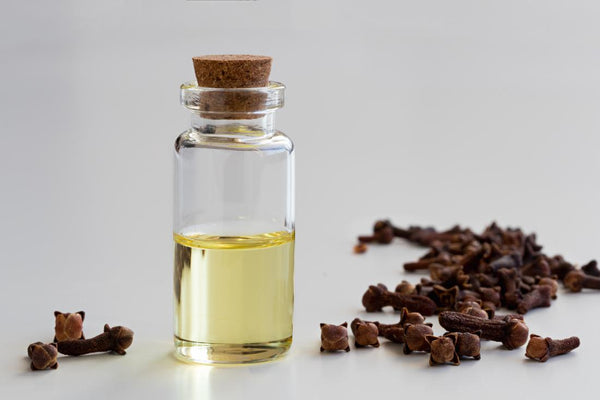Balancing Blood Sugar: Best Essential Oils For Insulin Resistance Management

Essential oils have been used for medicinal purposes for centuries, and their popularity has grown in recent years. Insulin resistance is a serious health condition that affects millions of people worldwide, and while there are medications available to help manage it, many people are turning to natural remedies as an alternative. Essential Oils are effective in managing insulin resistance and its symptoms. Insulin is crucial for regulating blood sugar levels by helping cells absorb glucose for energy. When cells become resistant to insulin, glucose builds up in the bloodstream, leading to high blood sugar levels. This metabolic dysfunction can have a significant impact on overall health. Insulin resistance is a key factor in the development of type 2 diabetes, as prolonged elevated blood sugar levels can damage organs and tissues throughout the body.
You may also like:
Moreover, insulin resistance is often associated with other serious health conditions, including obesity, high blood pressure, and abnormal cholesterol levels. Essential oils such as cinnamon, peppermint, and frankincense have been shown to have anti-inflammatory and antioxidant properties that can help combat insulin resistance. By incorporating these oils into your daily routine, either through aromatherapy, topical application, or ingestion (under the guidance of a qualified aromatherapist), you can harness their powerful benefits for better metabolic health. Not only do essential oils offer a natural and holistic approach to managing insulin resistance, but they also provide a pleasant and soothing experience for both the body and mind. Whether used in diffusers, massage oils, or added to bathwater, essential oils can help create a calming and therapeutic environment that supports overall well-being.
Best essential oils used for insulin resistance
1. Cinnamon essential oil
Beyond its culinary uses, cinnamon holds remarkable properties that can aid in regulating blood sugar levels, making it an effective remedy for managing insulin resistance. The key active component in cinnamon essential oil is cinnamaldehyde, which has been found to enhance insulin sensitivity and improve glucose metabolism. Studies have shown that consuming cinnamon essential oil can lead to lower blood sugar levels and improved insulin function, making it a valuable tool in combating insulin resistance. To incorporate cinnamon essential oil into your routine for optimal benefits, consider adding a sprinkle of this aromatic spice to your morning oatmeal, smoothies, or even savory dishes like curries and stews. Additionally, brewing a cup of cinnamon tea or infusing it in warm water can create a soothing and therapeutic beverage that supports blood sugar regulation.
2. Frankincense essential oil
Frankincense, revered for its aromatic properties and therapeutic benefits, holds a special place in the realm of essential oils. Its ability to address inflammation and support insulin sensitivity makes it a valuable natural remedy for those dealing with insulin resistance. When it comes to managing insulin resistance, chronic inflammation plays a significant role in exacerbating the condition. Frankincense essential oil, derived from the resin of the Boswellia tree, boasts potent anti-inflammatory properties that can help alleviate inflammation within the body. Studies have shown that frankincense essential oil contains compounds that can modulate inflammatory processes, thereby reducing the overall inflammatory burden on the body. By incorporating frankincense into your wellness routine, you can potentially mitigate the inflammatory response that contributes to insulin resistance. Furthermore, frankincense essential oil has been linked to improved insulin sensitivity, making it a promising ally in the fight against insulin resistance. By supporting the body's ability to regulate blood sugar levels more effectively, frankincense may help enhance insulin function and promote metabolic balance.
3. Bergamot essential oil
Derived from the peel of bergamot oranges, this essential oil offers a range of health benefits due to its unique composition. Research has shown that bergamot essential oil can help lower LDL (bad) cholesterol levels while increasing HDL (good) cholesterol levels, thereby promoting a healthier lipid profile. Additionally, bergamot oil has been found to have hypoglycemic effects, meaning it can help regulate blood sugar levels and improve insulin sensitivity. To harness the benefits of bergamot essential oil for managing insulin resistance, you can use it aromatically by diffusing it in your home or workspace. Alternatively, you can dilute bergamot oil with a carrier oil and apply it topically to pulse points or the bottoms of your feet. Remember to always perform a patch test before using any essential oil topically to ensure you don't have a negative reaction.
4. Clove essential oil

When it comes to combating insulin resistance, clove essential oil emerges as a powerful ally due to its ability to enhance insulin sensitivity and provide antioxidant protection. Studies have shown that clove essential oil contains compounds that can help regulate blood sugar levels and improve insulin function. Eugenol, a key component of clove oil, has been found to mimic insulin in the body, aiding in the uptake of glucose by cells and thereby reducing insulin resistance. Incorporating clove essential oil into your wellness routine can help support your body's natural mechanisms for managing blood sugar levels and promoting overall health. Whether diffused aromatically, applied topically with a carrier oil, or used in culinary creations, clove essential oil offers a versatile and effective solution for addressing insulin resistance naturally.
You may also like:
FAQs
1) Why has using essential oils for a soothing experience become popular?
Many people have been consuming essential oils for their health benefits and beauty treatments in recent years due to their effectiveness and affordability compared to other more expensive alternatives. Essential oils are much healthier and better absorbed by the body than other beauty products and chemicals. Today, many wellness practitioners use essential oils for this reason and more people are gravitating toward natural remedies as well.
2) Can these essential oils for comfort be used on children and pets?
Most of these essential oils are fairly safe to use on children and pets as they have a lower toxicity level compared to some other oils. However, always check with an aromatherapist or other health care professional before using it on your kids or pets.


Leave a comment